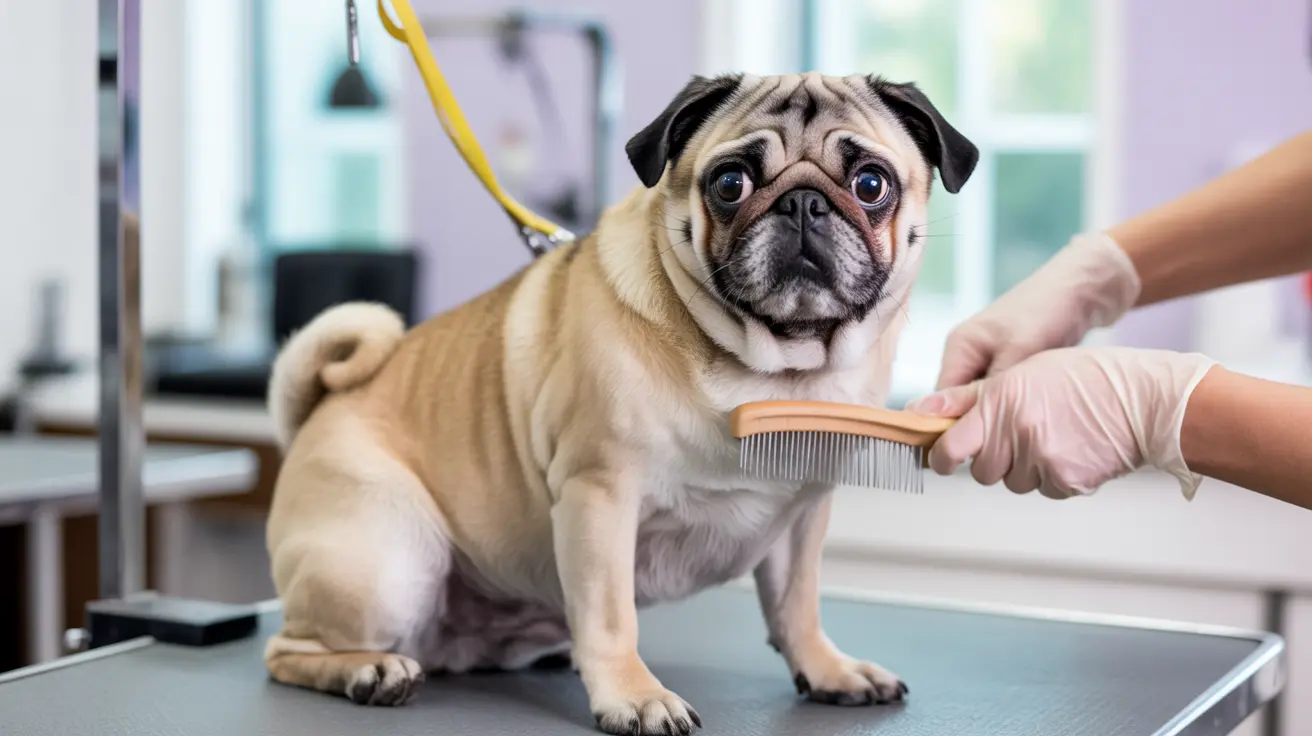If you've noticed white flakes in your dog's fur or on their bedding, your furry friend might be dealing with dog dandruff. This common skin condition affects many dogs and can range from a mild aesthetic concern to a sign of underlying health issues. Understanding the causes and proper treatment approaches is essential for maintaining your pet's skin health and overall well-being.
While dog dandruff might seem like a simple cosmetic issue, it can actually indicate various underlying conditions, from simple dry skin to more serious health concerns. This comprehensive guide will help you understand what causes dandruff in dogs, how to treat it effectively, and when to seek professional veterinary care.
Understanding the Types of Dog Dandruff
Dog dandruff typically manifests in two main forms: dry dandruff (seborrhea sicca) and oily dandruff (seborrhea oleosa). Dry dandruff appears as white, flaky skin particles, while oily dandruff presents as yellowish, greasy scales often accompanied by an unpleasant odor. Each type requires a different treatment approach for effective management.
Common Causes of Dog Dandruff
Environmental Factors
Environmental conditions play a significant role in causing dog dandruff. Dry winter air, indoor heating systems, and low humidity can strip moisture from your dog's skin, leading to flaking. Additionally, exposure to extreme temperatures or sudden environmental changes can trigger dandruff outbreaks.
Nutritional Deficiencies
Poor nutrition, particularly a lack of essential fatty acids, can contribute to skin problems and dandruff. A diet lacking in omega-3 and omega-6 fatty acids may result in dry, flaky skin and a dull coat.
Medical Conditions
Various health issues can cause or worsen dandruff, including:
- Hormonal imbalances
- Allergies (food or environmental)
- Parasitic infections like "walking dandruff"
- Fungal or bacterial skin infections
- Autoimmune conditions
Treatment Options
Immediate Care Measures
Several immediate steps can help manage dog dandruff:
- Regular brushing to distribute natural oils
- Using appropriate moisturizing shampoos
- Maintaining proper grooming schedules
- Adding a humidifier to your home
Long-term Management
For lasting results, consider these long-term solutions:
- Dietary supplements rich in omega fatty acids
- Regular veterinary check-ups
- Addressing any underlying health conditions
- Maintaining consistent grooming routines
Prevention Strategies
Preventing dog dandruff is often easier than treating it. Key preventive measures include:
- Maintaining proper humidity levels in your home
- Providing a balanced, nutritious diet
- Regular grooming with appropriate tools
- Using gentle, dog-specific grooming products
- Keeping your dog's living area clean and comfortable
Frequently Asked Questions
Why do dogs get dandruff, and what are the common causes?
Dogs develop dandruff due to various factors including environmental conditions, nutritional deficiencies, allergies, parasites, and underlying health issues. Dry air, poor diet, and certain skin conditions can all contribute to dandruff formation.
How can I treat dog dandruff at home with natural remedies?
Natural remedies for dog dandruff include regular brushing, using coconut oil as a moisturizer, ensuring proper nutrition with omega-3 supplements, and maintaining optimal humidity levels in your home. However, always consult your vet before starting any treatment regimen.
What is the difference between dry and oily dandruff in dogs, and how are they treated?
Dry dandruff (seborrhea sicca) presents as white, flaky skin, while oily dandruff (seborrhea oleosa) appears as yellowish, greasy scales. Dry dandruff typically requires moisturizing treatments, while oily dandruff may need medicated shampoos to control excess oil production.
Can a humidifier help prevent dog dandruff caused by dry air?
Yes, a humidifier can help prevent dog dandruff by maintaining optimal moisture levels in the air, especially during winter months or in dry climates. This helps keep your dog's skin hydrated and less prone to flaking.
When should I take my dog to a vet if they have dandruff?
Consult a veterinarian if dandruff persists despite home treatment, is accompanied by intense itching or redness, causes behavioral changes, or if you notice additional symptoms like hair loss or skin lesions. Professional evaluation is crucial for determining underlying causes and appropriate treatment.






